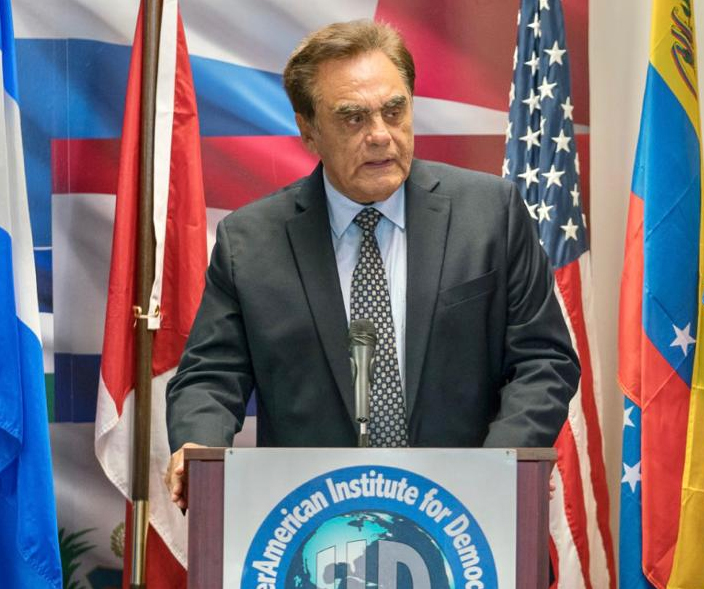A murder in The Hague

By: Luis Gonzales Posada - 06/04/2025
Share:
Chilean Foreign Minister Alberto Van Klaveren has traveled to The Hague to file a formal complaint against the Maduro government for the kidnapping and murder of Venezuelan Army Lieutenant Ronald Ojeda. This happened after the 11th Guarantee Court of Santiago filed a formal complaint against 19 members of the "Los Piratas" gang, a cell of the "Tren de Aragua" group, accused of committing the crime, classified as a "crime against humanity."
Ojeda had been imprisoned since April 19, 2017, with 33 comrades in arms, members of the Movement for Freedom and Democracy, but escaped on November 30 of that year, throwing himself onto the pavement from the vehicle that was transporting him to the military court.
He went into hiding for several months and moved to Chile, where the government granted him political asylum. In November 2022, Ojeda was filmed on television on his knees, arms outstretched and a black bag over his head, in front of La Moneda Palace, the seat of government, demanding elections and freedom for political prisoners.
Ojeda, then, had become a symbol of resistance, and his life was in danger. Despite constantly changing his address, he disappeared on February 21.
The television station aired a video showing Ojeda “taken from his home in his underwear at 3:10 a.m. by several heavily armed, hooded men dressed in black, wearing helmets, balaclavas, and bulletproof vests.”
Ten days after the kidnapping, her body was found in a suitcase buried a meter and a half deep and sealed with cement, with obvious signs of atrocious torture.
Ojeda left behind a diary chronicling his escape and captivity. It runs to 185 pages, recounting the barbaric acts he suffered in prison.
In that document, he recalled:
“Electric shocks became routine practice when they got you to talk. It starts with light sessions, which progressively increase depending on the level of information you provide. Mechanical asphyxiation and beatings with mechanical bars wrapped in sponge are to show you that the law doesn't exist there.”
The Santiago newspaper La Tercera, which published part of the testimony, noted that the account also details how “he was hung on a wall for hours, or his head was submerged in a bucket of water to make him talk and tell a testimony they wanted him to repeat. This went on for 13 days.”
Killing exiled opponents is a practice of autocracies. Just referring to Chile, let's recall that in 1974, former Army Commander-in-Chief General Carlos Prats and his wife were assassinated in Buenos Aires, Argentina, by a car bomb, and in 1976, Salvador Allende's former foreign minister, Ambassador Orlando Letelier, was killed in Washington by a remote-controlled explosive device.
Now that the judges of the International Criminal Court (ICC) hear the testimony and evidence presented by Chile's Foreign Minister, a magnificent opportunity opens up to prosecute and punish those responsible for this serious crime.
Furthermore, this case tests the credibility and prestige of the ICC, an institution that many consider bureaucratic and ineffective, despite having an annual budget of 203 million euros, hundreds of officials, and 123 member countries. Yet, 27 years after its creation on July 17, 1998, it has only sentenced the head of Mali's Islamic police and one Congolese leader.
In a world where crimes are committed not only by criminals or criminal gangs, but also by states, it is important to establish that there is no impunity and no crime without punishment. The case of Lieutenant Ronald Ojeda is a historic opportunity to demonstrate this.
«The opinions published herein are the sole responsibility of its author».